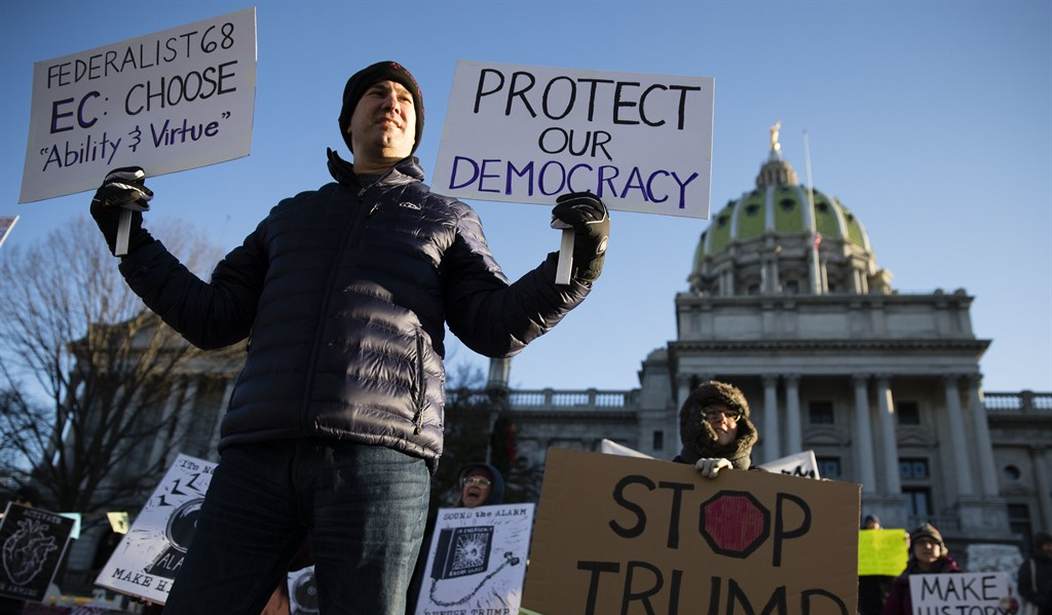Last Tuesday the U.S. Court of Appeals for the 10th Circuit decided that Presidential Electors are not bound by the variety of state laws that direct them how to vote. The specific participants in the case included Michael Baca, a 2016 Colorado Elector pledged to Democratic presidential nominee Hillary Clinton but who instead attempted to cast his vote for former Ohio Governor John Kasich.
The Constitution of the United States created the Electoral College as a republican means of electing the executive of our nation. It was meant to be a layered institution similar to electoral organizations in the Roman Empire, Holy Roman Empire, Republic of Venice, and many others.
As a balance between democracy and oligarchy, it was meant to be an institution where the citizenry would elect counseled and wise civic leaders and representatives who would then come together to cast their votes for the President and Vice-President. However, the institution has seen the enormous change since its creation at our nation’s founding – including the norm of electors being largely mere appendages to the popular vote of a state.
Yet current constitutional law does not support a legal, rather than the norm, restriction on electors’ rights once they have taken office. A majority of states have laws requiring electors to vote in accordance with the popular vote of the state, with penalties ranging from a fine to criminal sanction.
However as Judge McHugh correctly wrote last Tuesday, whatever the norms and potentially better ways of designing the system, as it currently stands Electors are free and protected in how they cast their vote even if it goes against their state’s popular results.
Electors are created by Article II, Section 1 of the Constitution in relation to their role in choosing the President and Vice-President. The qualifications, selection process for, and powers of electors are then detailed further by various amendments. The Constitution explicitly directs that states are given the power to appoint their electors as they see fit, with now all states doing so through a popular vote.
Recommended
However, these Electors remain free to vote how they choose as the Constitution only prescribes that states can decide the manner of selection but not actually direct the Electors actions. For states to have such control would be akin to states passing laws that allow them to mandate a U.S. Senator or U.S. Congressmen vote in a particular way on federal legislation – a preposterous idea.
The U.S. Supreme Court last ruled on Elector freedom in 1952 in Ray v. Blair. The Supreme Court then ruled it was constitutional for states to require pledges by Elector candidates to vote for their party’s nominees, as that was a means of Elector selection explicitly permitted by the Constitution. However, the Supreme Court did not decide upon the question of whether an Elector, despite having made a pledge, actually has to cast their vote legally in accordance with such pledge.
I was a 2016 GOP Elector nominee in Virginia for then-candidate Donald J. Trump, one of two nominated statewide by a convention of Virginia Republicans. As I spoke of to POLITICO and wrote in The Hill in 2016, for Electors in our modern-day to vote outside of their pledge would need, from a moral standpoint, immense public buy-in and coordinated institutional effort in order for our republic to handle and accept such a reversal of established norms.
It is possible, and even potentially beneficial, to revert to a system as the founders intended where electors came together to deliberate and select the leaders of our nation. Pledges, an election strategy that became a norm and then law, could still remain part of that.
On the other hand, it may also be beneficial to crystalize the Electoral College as it is currently designed with Electors being mere ceremonial figureheads. This would require federal legislation or even potentially a constitutional amendment which, amid currently efforts to even eliminate the Electoral College, as I described recently in Fox News, may prove just as difficult to implement.
We may soon see the Supreme Court put to a rest the pending question of whether Electors’ actual vote can be bound. I believe not, but even such a decision would not settle the still many norm and policy questions our elegant – if legacy – system of electing our chief executive brings us to every four years.
























Join the conversation as a VIP Member